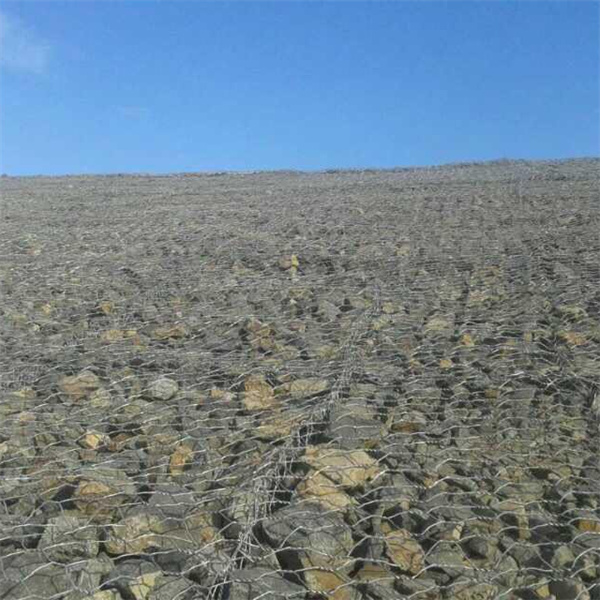авг. . 11, 2024 09:22 Back to list
Stunning Landscape Designs Featuring Durable and Aesthetic Gabion Wall Structures for Outdoor Spaces
High-Quality Landscape Gabion Walls A Perfect Blend of Functionality and Aesthetics
In the realm of landscape architecture, gabion walls have emerged as a popular element due to their unique ability to merge functionality with aesthetic appeal. These structures, constructed from wire mesh cages filled with stones, are not only practical but also offer a visually pleasing option for landscaping. This article delves into the benefits of high-quality landscape gabion walls and their various applications.
What Are Gabion Walls?
Gabion walls are robust, durable structures primarily used for soil retention, erosion control, and as decorative elements in landscaping. They are constructed by stacking wire mesh baskets filled with stones, concrete, or other materials. This versatility allows for a variety of designs and sizes, making them suitable for different landscape settings.
Benefits of High-Quality Gabion Walls
1. Durability and Longevity High-quality gabion walls are designed to withstand harsh environmental conditions. Crafted from galvanized or stainless steel wire, these walls resist rust and corrosion, ensuring longevity and reducing maintenance costs. The stones used in the fill material are also chosen for their durability, providing a sturdy barrier against erosion and weathering.
2. Erosion Control One of the primary functions of gabion walls is to control soil erosion. By creating a physical barrier, they prevent soil from washing away during heavy rains. This makes them an ideal solution for areas prone to erosion, such as riverbanks or hilly landscapes. The porous nature of gabions allows water to drain, reducing the risk of mudslides and maintaining the integrity of the surrounding soil.
high quality landscape gabion walls

3. Aesthetic Appeal While gabion walls serve a practical purpose, they are also highly adaptable in terms of aesthetics. Available in various sizes and configurations, they can be integrated into gardens, parks, and commercial landscapes. When filled with natural stones, gabions blend seamlessly with the environment, enhancing the overall beauty of a space. Designers may also opt for colored stones or unique materials to create a striking visual effect.
4. Eco-Friendly Solutions The use of natural materials in gabion walls aligns with sustainable building practices. By utilizing locally sourced stones and reducing the need for concrete, these structures have a minimal environmental impact. Furthermore, gabions promote biodiversity as they create habitats for small wildlife and vegetation within the wall's framework.
5. Versatile Applications Gabion walls can serve various purposes beyond erosion control. They are often used in landscaping for terracing, creating raised planters, or as decorative features such as seating areas or privacy screens. Their adaptability makes them suitable for residential gardens, commercial properties, and public spaces.
Construction Considerations
When constructing a high-quality gabion wall, it is essential to consider several factors. The choice of materials, including the type of mesh and rock, plays a critical role in the wall's durability and appearance. Proper drainage and leveling during installation are also vital to ensure stability and prevent water accumulation, which could compromise the wall's integrity.
Conclusion
High-quality landscape gabion walls represent an impressive fusion of functionality and beauty. Their durability, erosion control capabilities, aesthetic versatility, eco-friendliness, and wide range of applications make them an excellent choice for modern landscaping needs. As landscape architects and homeowners increasingly seek sustainable and visually appealing solutions, gabion walls will continue to be a favored option in the creation of stunning outdoor spaces. Whether used as a practical retaining wall or a decorative garden feature, gabion walls are sure to enhance any landscape.
-
Visualizing Gabion 3D Integration in Urban Landscapes with Rendering
NewsJul.23,2025
-
The Design and Sustainability of Gabion Wire Mesh Panels
NewsJul.23,2025
-
The Acoustic Performance of Gabion Sound Barriers in Urban Environments
NewsJul.23,2025
-
Mastering the Installation of Galvanized Gabion Structures
NewsJul.23,2025
-
Gabion Boxes: Pioneering Sustainable Infrastructure Across the Globe
NewsJul.23,2025
-
Custom PVC Coated Gabion Boxes for Aesthetic Excellence
NewsJul.23,2025
-
Installation Tips for Gabion Wire Baskets in Erosion Control Projects
NewsJul.21,2025






